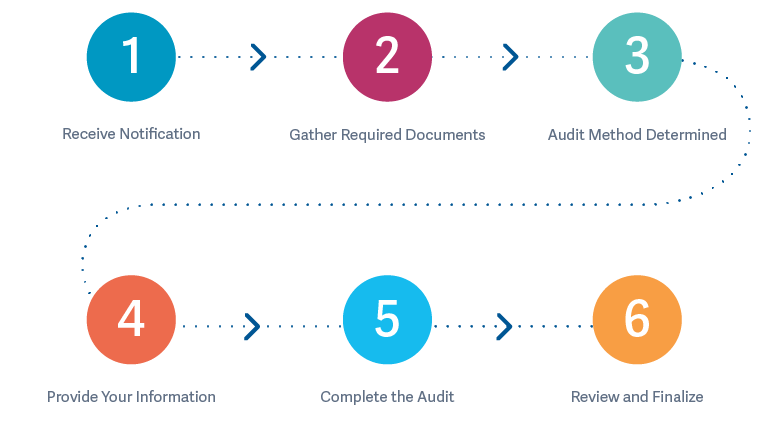Workers
Compensation
Premium Audit: Ensuring Accurate Coverage and Correct Pricing
Overview
Our priority is to ensure that your insurance reflects the true nature of your operations. Through our premium audit process, we help you protect your employees by ensuring accurate classification and correct exposure, so you never pay more—or less—than necessary.
What Is a Premium Audit
A premium audit is a standard review of your company’s records and operations at the end of your policy period or upon cancellation. Required premium audits play a key role in your policy, helping us determine your actual earned premium based on real data.
Why They Are Performed
We conduct premium audits to verify the accuracy of the initial estimates, or the reported figures used to calculate your unearned premium. This process ensures you pay the correct premium which reflects your actual business activity. Based on your audit results, you could receive a refund for overpaid premiums or owe additional premium if your business has grown or payroll was reported incorrectly.
What to Expect During the Audit
Depending on the size and complexity of your account, BHHC offers the flexibility of remote or on-site audits to accommodate your business needs. During the audit, we require you to provide specific documents such as payroll reports, tax returns, financial statements, general ledgers, and subcontractor agreements. We designed our audit process to be as straightforward and efficient as possible, with our team guiding you every step of the way.
How to Prepare for Your Audit
To ensure a smooth and accurate audit experience, we recommend that you:
- Organize Your Financial Records: Gather documents like payroll reports, tax returns, and subcontractor payments.
- Ensure Documentation Is Up to Date: Accurate and current records will help expedite the process and lead to accurate premium adjustments. That includes updated job titles and duties for employees to ensure correct classification.
Steps to Complete Your Premium Audit

- Receive Notification: You will be notified when your premium audit is due, typically at the end of your policy period or shortly after that.
- Gather Required Documents: Prepare necessary documents such as payroll records, 941 Quarterly Tax Returns, State Unemployment Wage Reports, tax returns, and financial statements.
- Audit Method Determined: Depending on the complexity of your business, you can complete the audit remotely or onsite.
- Provide Your Information: An auditor will reach out to notify you of the documentation needed for your audit and schedule an appointment. If your policy qualifies for a remote audit, you will receive instructions on how to upload your files electronically.
- Complete the Audit: Our audit team will review the information and may request additional details if necessary. The audit will be performed either remotely or on site.
- Review and Finalize: After the audit, you will receive a summary of the findings, and we will reflect any premium adjustments in your billing statement.
Detailed Premium Audit FAQ
When Are Audits Performed?
Audits are typically conducted at the end of your policy period or upon cancellation. Sometimes, we may complete a midterm audit to ensure that your policy’s exposures are accurately set, which reduces your risk of large billing adjustments at the final audit.
What Documents Are Required for the Audit?
Commonly required documents include payroll reports, tax returns, financial statements, general ledgers, subcontractor payments, 1099/1096 forms, certificates of insurance for subcontractors, and certified payrolls for wrap-up (OCIP/CCIP) jobs. Specific documents may vary based on your business type and coverage.
How Is the Premium Adjusted After the Audit?
If the audit reveals that your actual exposure was higher than estimated or reported, you could owe an additional premium. Conversely, you may receive a refund or credit if your exposure was lower.
Can the Audit Be Conducted Remotely?
Yes, BHHC offers flexible audit options, including remote and on-site audits. Your eligibility for a remote audit depends on the specifics of your account.
What Happens if I Do Not Comply With the Audit?
Non-compliance with the audit process can result in the cancellation of your current policy and a charge of up to three times your estimated annual premium, in accordance with audit noncompliance charge (ANC) rules from the National Council on Compensation Insurance (NCCI) and the ANC endorsement on your policy.
Where Will the On-Site Audit Be Conducted?
On-site audits typically occur at your main business location unless records are kept somewhere else. If so, please inform BHHC or your agent as soon as possible.
When Will I Know the Result of My Final Audit?
Final audit statements are usually issued within a week of the audit’s completion and submission for processing.
How Can I Obtain a Copy of My Audit?
To obtain a copy of your audit work papers, please contact us at [email protected].
What Should I Do if I Disagree With the Audit Results?
If you disagree with the audit results, you can file a dispute by contacting us at [email protected]. Our team will provide you with a dispute form and instructions for submitting relevant data. A dispute analyst will review the information and make a determination.
Contact BHHC Premium Audit
If you have any questions or need assistance during the audit process, our dedicated team is here to help. You can reach us through the following:
PHONE
(888) 495-8949
At BHHC, the premium audit process is not just a requirement but an opportunity to service you and ensure that your policy reflects your actual business needs, providing you with the right coverage at the correct price.
As of: 12/16/2025

Manage Account
Agents/Brokers
Property and Casualty
Workers Compensation
Businesses/Policyholders
Commercial Auto
Workers Compensation
Tips for a Successful Audit
Managing your documentation process is vital to having a smooth and successful audit.
